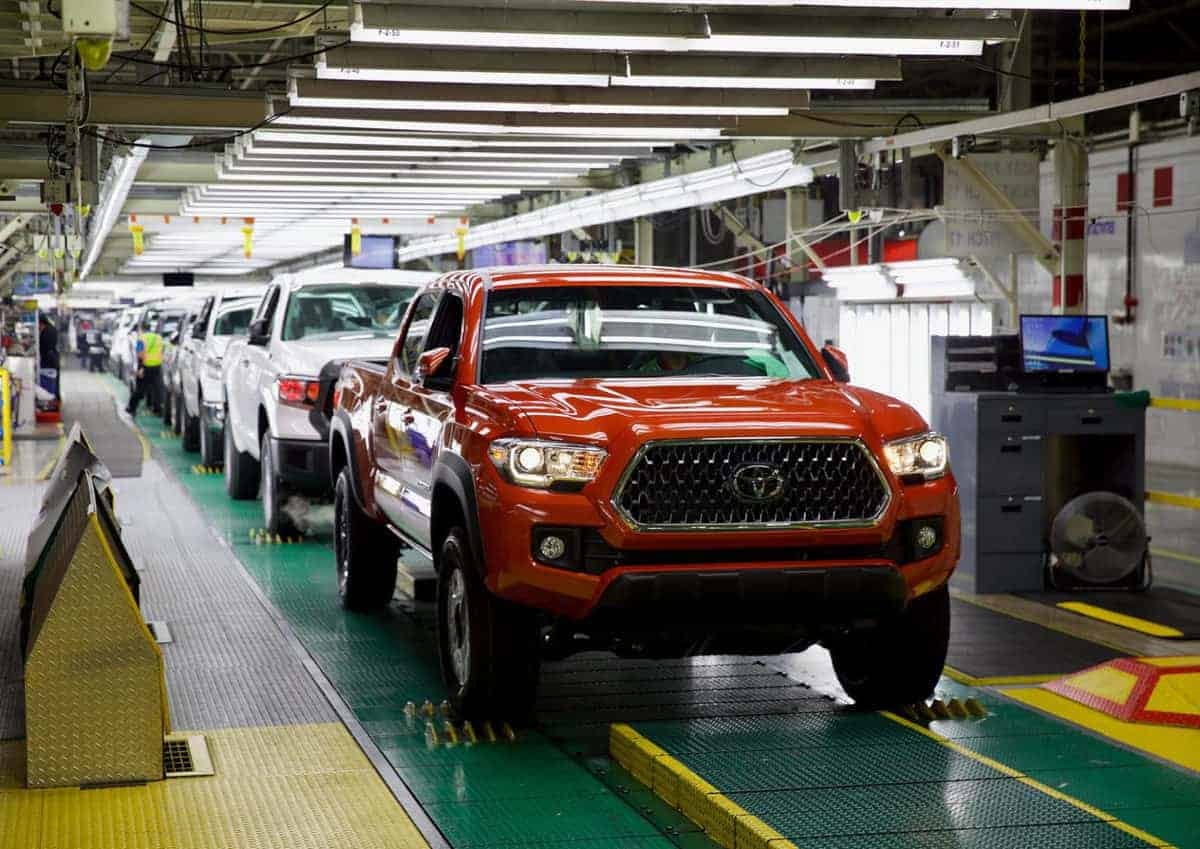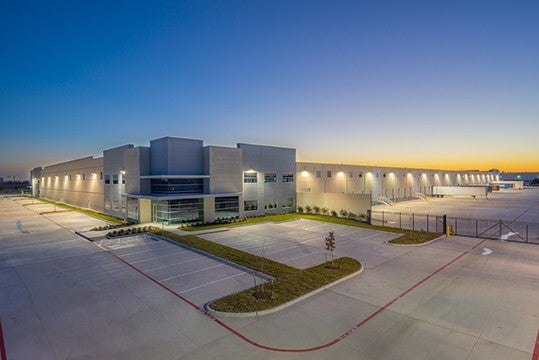Borderlands is a weekly rundown of developments in the world of United States-Mexico cross-border trucking and trade. This week: Mexican train blockade costing millions; Toyota and VW expand in Mexico; tire manufacturer opens Houston facility; Xxentria opens border operation; and US, Mexico and Canada extend border closures.
Rail blockades in Mexico costing millions in delayed freight
Mexican farmers protesting water rights have blocked railway tracks across the country since Aug. 26, costing Mexico’s economy millions in delayed freight, according to trade officials.
The dispute between farmers and the administration of Mexican President Andrés Manuel López Obrador began in August with blockades of highways and railroad tracks in the Mexican states of Sonora and Chihuahua.
Raquel Espinoza, a spokeswoman for Omaha, Nebraska-based Union Pacific (NYSE: UNP), said the situation has interrupted the railroad company’s operation in El Paso, Texas.
“Rail blockades in Chihuahua are seriously restricting the flow of rail shipments moving through the El Paso gateway,” Espinoza said. “While Union Pacific is rerouting rail traffic through other border crossings, customers are experiencing extended delays and disruptions to critical supply chains.”
Espinoza added, “we urge government officials in Mexico to find a peaceful solution to restore rail operations and resume international commerce that is important to the United States and Mexico.”
Along with Union Pacific, the Burlington Northern Santa Fe (BNSF) rail company also has operations in El Paso and other ports in Texas.
“BNSF remains in close communication with Ferromex regarding the blockade impacting the El Paso gateway. We are currently still able to move shipments north of the blockade and anything heading south is being rerouted to Eagle Pass, Texas,” said Amy Casas, spokeswoman for BNSF.
Ferromex is one of Mexico’s largest railroads. The company has more than 6,200 miles of track, representing 80% of the coverage in the Mexican National Railway System, according to a release. Ferromex connects to Eagle Pass and El Paso; Texas, Nogales, Arizona; and El Centro, California.
It is unclear how much money the protests are costing railroad companies in delayed freight.
Laredo, Texas, is the No. 1 international rail port in the U.S., accounting for $44 billion in total trade during 2019. El Paso was the 10th-ranked rail port in 2019, accounting for almost $9 billion in trade.
The top three commodities transported by international rail in 2019 were motor vehicles and parts ($89 billion); minerals and fuels ($14 billion); and plastics ($9 billion), accounting for 63% of cross-border rail freight, according to the U.S. Bureau of Transportation Statistics.
The farmers’ protest has sparked other rail blockades across Mexico. Teachers in the Mexican state of Michoacán have been blocking the train tracks of Kansas City Southern de Mexico (KCSM) since Aug. 27, continuing to disrupt service to and from the port of Lazaro Cardenas.
The teachers in Michoacán are protesting lack of jobs, low pay, and requesting the release of political prisoners. KCSM is the Mexico operations of Kansas City Southern (NYSE: KSU).
Several cross-border logistics operators said they have not had any disruptions to clients shipments yet, but if the rail blockades continue it could strain capacity.
“I would imagine that’s going to cause even more constraint on northbound freight out of Chihuahua, Juarez and El Paso, markets that are already super saturated,” said Matt Silver, president and CEO of Chicago-based Forager.
Toyota, Volkswagen expanding auto production in Mexico
Just eight months after opening its $700 million plant in Mexico, Toyota has announced it will spend another $170 million on the manufacturing facility.
Volkswagen also recently announced it will expand production at its plant in Puebla, Mexico, adding its new Taos SUV model to the plant’s lineup of vehicles.
Toyota is increasing its production capacity of the Tacoma pickup from 100,000 to 138,000 units per year at the plant Apaseo el Grande, Guanajuato, Mexico. The vehicles will be for the North American market.

With the investment, Toyota will also add another 500 direct jobs at the plant. The facility, which also manufactures Toyota Corollas, currently employs about 1,000 people. The expansion is scheduled to be completed by 2022.
In January, Toyota announced it was moving its Tacoma pickup assembly line from San Antonio to the plant in Apaseo el Grande. Toyota will begin manufacturing the Sequoia SUV in San Antonio by 2022.
Volkswagen’s new Taos SUV model is set to be unveiled to the public on Oct. 13, with production in Puebla starting in 2021. The company currently assembles its Jetta, Tiguan and Golf models at the Puebla plant.
Tire manufacturer opens distribution center in Houston
Double Coin and CMA, a tire manufacturer and marketer, recently opened its newest warehouse and distribution center in Houston.
The new warehouse — Double Coin’s largest in North America — includes office space, 29 docks and two drive-up ramps. Double Coin did not disclose its size, but the facility is listed at 365,727 square feet according to Harris County property records.

The warehouse will serve the demand for Double Coin’s range of truck and bus radial (TBR) and over-the-road (OTR)/individual (IND) tires.
Double Coin officials said the new warehouse/distribution center complements the company’s manufacturing facility in Thailand, which will be shipping tariff-free tires to Houston.
“The warehouse is also just minutes away from the Houston docks, which will make shipping easier and quicker,” said Tim Phillips, vice president of marketing and operations for CMA, in a release.
The Houston warehouse is Double Coin’s seventh in North America. In addition to four located in the U.S., the company has a facility in Airdrie, Canada; Querètaro, Mexico; and San Josè, Costa Rica.
Taiwanese firm opening cross-border operations in New Mexico
Xxentria Technology Materials Co. announced it is opening a binational manufacturing and distribution operation on both sides of the U.S.-Mexico border near the port of entry in Santa Teresa, New Mexico.
Xxentria will convert a 40-acre site across from a FedEx Ground facility in the Westpark Logistics Center. The facility will serve as an office and manufacturing/distribution facility. It will initially include 35 employees, with the possibility of expanding its workforce.
Across the border in Chihuahua, Mexico, Xxentria will also be building a production facility, according to a release. The company did not disclose what it will be producing in Mexico or how many jobs the facility will create.
Xxentria, which is based in Tainan City, Taiwan, is a global supplier of metal composite materials used in products such as galvanized steel and aluminum composite panels for the transportation and architecture industries.
The new location will utilize Union Pacific’s intermodal terminal in Santa Teresa and allow the company to better serve U.S. customers, said Howard Chen, chairman and CEO of Xxentria.
“Many of our key suppliers will also follow us and we look forward to building a long-term relationship with the state of New Mexico,” Chen said.
Construction on the facility in New Mexico is scheduled to begin in 2021, with the facility in Chihuahua following soon after.
US, Mexico and Canada extend non-essential border closures
The United States, Canada and Mexico have extended the closure of their shared borders for non-essential travel until at least Oct. 21.
Transport trucks remain exempt for the restrictions intended to curb the spread of COVID-19.
Officials in the three countries announced the extension of the border closures on Friday.
The restrictions, in place for nearly six months, haven’t had a significant direct impact on cross-border trucking. The biggest drag continues to come from economic fallout from the pandemic on the billions of dollars in trade among the three countries.
Click for more FreightWaves articles by Noi Mahoney.
More articles by Noi Mahoney
Modernizing global trade with cutting edge technology







